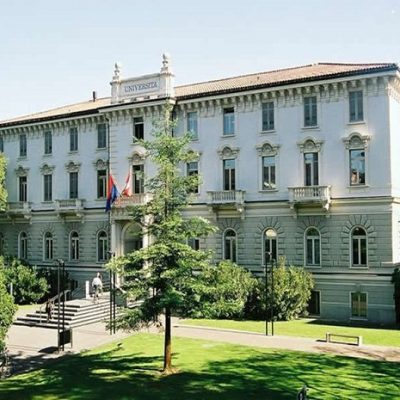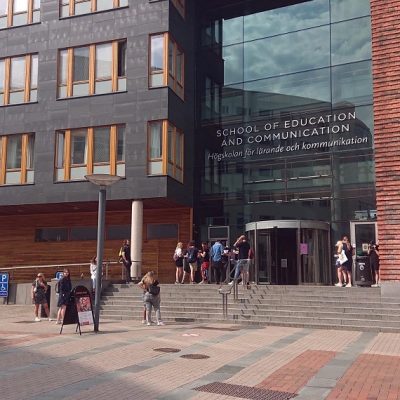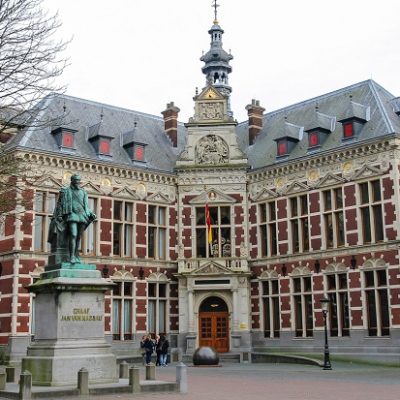International Communication
Program Mission and Objectives
The MA Programme in International Communication at Babeș-Bolyai University aims to provide students with the knowledge and skills necessary for a successful career in the field of communication and international relations, as well as the capacity for continuous self-improvement in these fields. Communication skills are of increasing importance within institutions and organizations, regardless of the field of activity, and communication specialists must be better prepared to respond to complex challenges. The courses are conducted in both Romanian and English, which allows students to develop their language skills for professional purposes.
The program is conducted in Romanian and English and is addressed to all bachelor graduates who want to improve their communication skills, in fields such as international relations, political science, foreign languages, management, marketing and other fields.


The skills provided through the study program
– Interpersonal, inter-institutional, intercultural, and international communication skills
– Capacity for communication and teamwork.
– Knowledge and understanding of basic concepts, theories, and methods in the field and specialization area, and their appropriate use in professional communication.
–Ability to design and implement intercultural communication and management strategies.;
– Application of principles and theories specific to the field of international communication.
– Development of professional and research projects using established methods and principles in the field.
– Transdisciplinary knowledge and understanding of theories and methods specific to international relations, with a focus on the study of international communication.
– Critical knowledge and evaluation of communication models between organizational departments and citizens from various perspectives.
– Effective use of critical, reflective, and applied thinking.
– Mediation skills for crisis and conflict management in the field of international communication.
– Transdisciplinary use of theories and methods specific to international relations in professional communication.
– Ability to analyze and evaluate the role of communication in organizations and the European business environment.
– Transdisciplinary application of principles and methods to solve typical problems in international relations, from the perspective of European policies.
– Conducting impact and complex policy analyses.
– Transdisciplinary use of knowledge to explain and interpret different types of concepts, processes, situations, and projects associated with international relations.
Career opportunities
Because 2023 is declared the European Year of Skills, it’s an opportune time to develop your communication skills! But how important are communication skills? Below are some answers:
- New to the job market? These 5 soft skills could give young workers an edge, according to (LinkedIn)
- Statistics on why effective communication is important in the workplace.(LinkedIn)
- Over 20 abilities that recruiters see favourably in a CV in 2023 (eJobs-Carieră)
- The Positive Impact Of Crisis Communication Preparedness (Forbes)
- 15 Qualifications The Manager Of A Crisis Communications Team Must Have (Forbes)
- International governmental and non-governmental organizations
- National, regional or local administration
- Consulting firms
- Education
- Institutions and agencies of the European Union
- Multinational companies
- Mass-media
- Research
Curriculum
1st YEAR
- Communication Skills
- Negotiations and Intercultural Relations
- Contemporary Concepts and Approaches in International Relations Theory
- Public speaking
- Models of Leadership and Netwoking
- Managerial Communication
- Crisis Communication
- International Branding Strategies
- Project Cycle Management
- Language Policy and Practice in Multilingual Context
- Diplomatic protocol and communication
2nd YEAR
- Typology of international crises
- Digital Communication
- Media and communication
- Political Communication
- Academic Ethics and Integrity
- Dezvoltare profesională și program aplicativ de training
- Models of best practice in European affairs and project management
- Cultural diplomacy strategies
- Intercultural Communication FR/EN
- Case studies in International and European Negotiations
Compatibility with other master's programs
Testimonials
Admission criteria:
General criteria:
An interview (100% of the final admission grade)
What we are interested in: Creativity, problem-solving skills, communication skills, experience (where applicable), teamwork spirit, initiative, the contribution of the master’s degree to the candidate’s short-term, medium-term, and long-term professional, personal, and social goals.
Students are asked to present a CV in the European CV format at the interview.
Criteria for differentiation (in case of equal grades/scores).
Criterion A: Bachelor’s degree GPA.
Criterion B: GPA of undergraduate years (applies only to candidates with the same master’s admission GPA and the same bachelor’s GPA).






